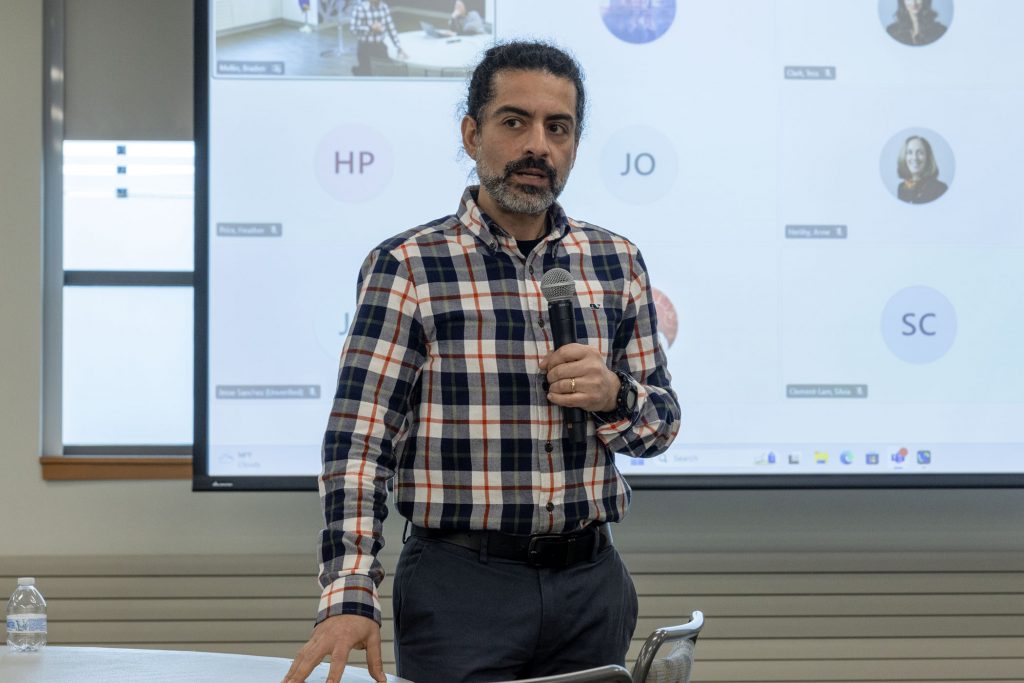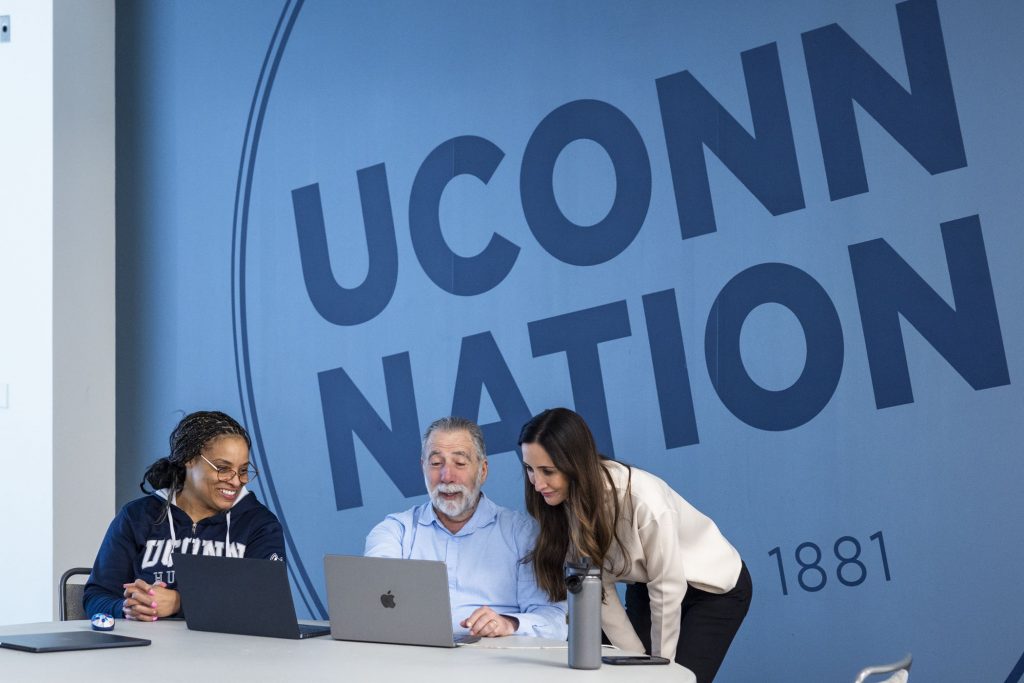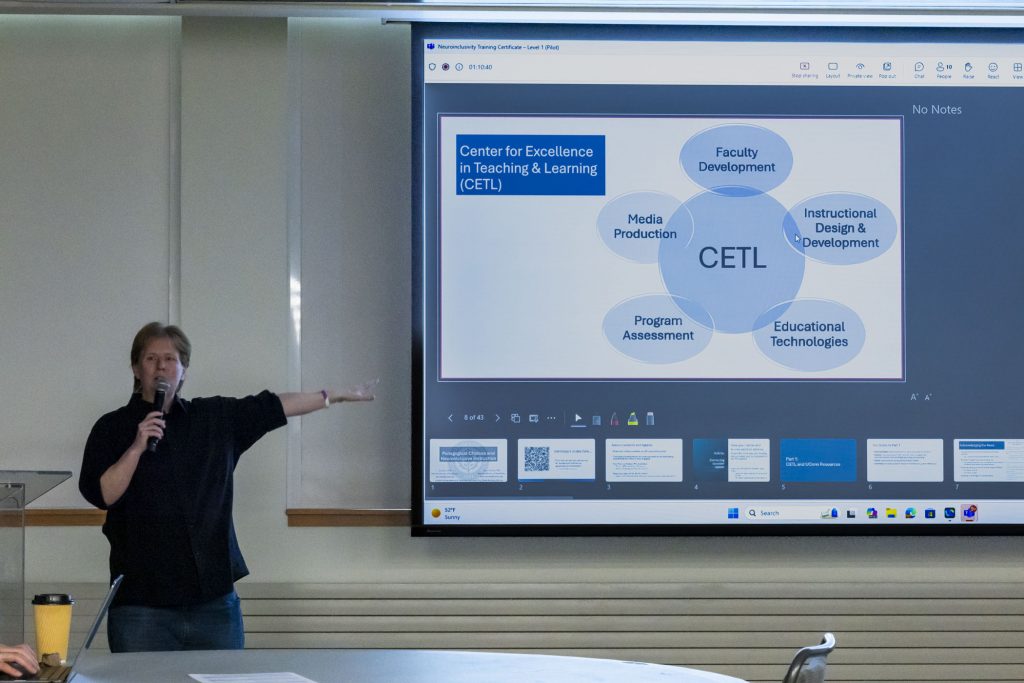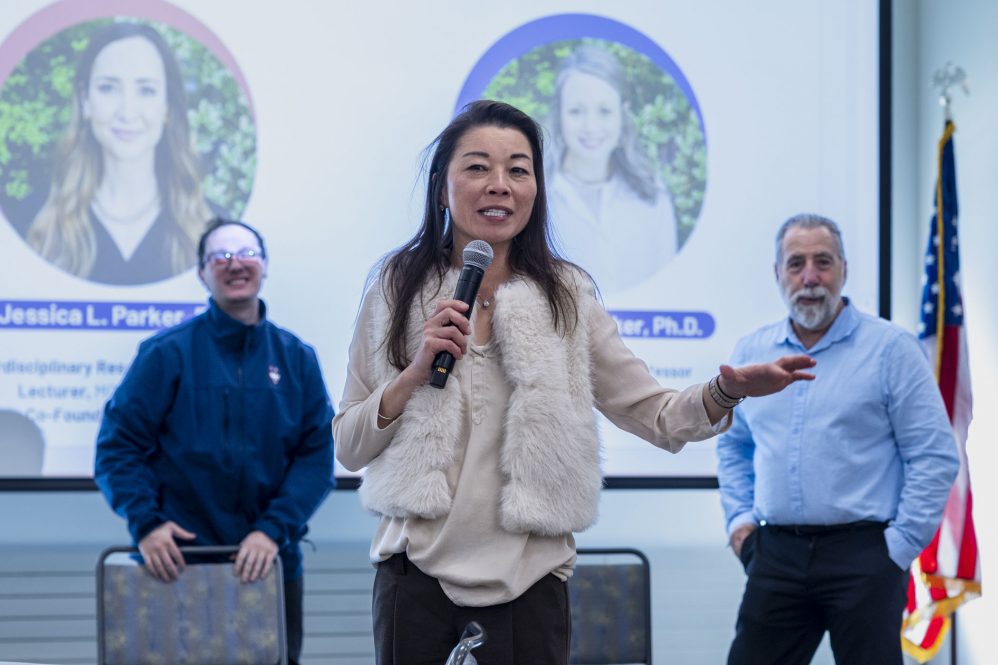UConn Waterbury is leading a bold transformation in higher education with the launch of its Neurovariability Initiative—a campus-wide effort rooted in neuroscience, learning science, and innovation. Rather than emphasizing challenges or labels, this initiative recognizes the natural variability in how people think and learn, designing systems that amplify cognitive strengths, remove barriers, and foster student success in a rapidly evolving world.
Co-created by Campus Dean and CAO Fumiko Hoeft and UConn Engineering Professor Arash Zaghi, both of whom bring lived experience as dyslexic, ADHD-identifying individuals—and as parents of neurodivergent learners—the initiative integrates educational neuroscience, AI-enhanced tools, and Universal Design for Learning (UDL) into a cohesive and forward-looking framework.
“Our goal is to cultivate an environment where every student’s potential can be maximized—regardless of how they process information,” says Hoeft.
“This is about unlocking talent that’s often overlooked—not by lowering the bar, but by rethinking how success is defined, supported, and scaled,” adds Zaghi.
This initiative complements university-wide efforts such as CETL’s inclusive teaching programs and UConn Engineering’s Include Program, which also emphasize neuroinclusivity, faculty training, and the responsible use of AI in education.
“The Neurovariability Initiative is a powerful example of how the Waterbury campus is leading with science, innovation, and compassion,” says UConn President Radenka Maric. “By recognizing that students think and learn in different ways, and by designing systems that build on those strengths, this initiative reflects our UConn-wide commitment to empowering every learner and preparing them to thrive in a rapidly changing world.”

Spring Break Pilot Training: Building Capacity Across Campus
UConn Waterbury hosted its inaugural Neurovariability Level 1 Training—a four-day hybrid workshop during UConn’s spring break, coinciding with the Neurodiversity Celebration Week, a worldwide initiative. Faculty and staff from across campus, including Student Services, Advising, Student Health and Wellness (SHaW), the Academic Achievement Center (AAC), Operations, and Academic Affairs, participated in hands-on sessions that focused on strength-based educational practices, UDL-aligned advising and teaching, responsible use of AI, and inclusive support strategies for all learners. This milestone training laid the groundwork for a growing community of practice focused on high-impact, personalized learning.
“This training challenged me to think differently about how we engage students—not just by accommodating their needs, but by tapping into their unique strengths from the start,” said Professor Laura Donorfio of Human Development and Family Sciences (HDFS). “As someone who’s dedicated to supporting human growth across the lifespan, I found the emphasis on brain-based learning and inclusive design incredibly powerful. It’s something I’ll carry into both my teaching and mentoring.”
Key Terms
- Neurovariability refers to the full spectrum of natural differences in how individuals think, learn, and process information. It emphasizes that these differences are not deficits, but essential to human potential, creativity, and innovation.
- Neurodiversity is the scientific and social understanding that all human brains are different, and that this variation—whether subtle or significant—is part of the normal range of human cognition. It encompasses everyone, not just those with diagnoses.
- Neurodivergent describes individuals whose cognitive functioning differs significantly from societal norms. This includes, but is not limited to, people with autism, ADHD, dyslexia, or other learning differences—who may face challenges but also bring unique strengths.
- Neuroinclusive refers to environments, practices, and systems that intentionally support, value, and include the full range of cognitive styles and brain-based differences—removing barriers and enabling all individuals to thrive.
The training brought together an impressive roster of national and international experts in education, technology, and cognitive science:
Kate Griggs, Founder of Made by Dyslexia, joined from London for a virtual fireside chat highlighting the global movement for recognizing and nurturing diverse thinking in schools and workplaces. “If we can teach dyslexic students in the way they learn, they will change the world,” Griggs noted.
Jessica Parker & Kimberly Becker, Co-Founders of Moxie, introduced their AI-powered academic writing tool designed to support student success through ethically guided, personalized feedback. “We build tools that adapt to learners—not the other way around,” said Parker.
Sam Johnston, Chief Postsecondary & Workforce Development Officer at CAST, framed UDL as a proactive, research-driven approach to building more flexible, accessible learning environments. “UDL is about designing for variability from the beginning—not retrofitting for differences later.”
Professor Arash Zaghi, co-creator of the initiative and lead behind Include Program (originally funded by the NSF RED grant), shared how cognitive diversity drives innovation in engineering and beyond. Zaghi is also the recipient of the prestigious White House PECASE Award—the highest honor for early-career scientists in the U.S. “This initiative isn’t about fixing students—it’s about fixing the system. We’re redesigning learning to work better for everyone, including those whose talents are too often missed.”

Jesse Sanchez, Managing Director of Programs at the Neurodiversity Alliance and an ADHD individual himself, shared his lived experience, and offered guidance on fostering student-led learning communities and promoting self-advocacy.
Stan Gloss, a dyslexic entrepreneur, also shared his lived experience and discussed neurovariability as a competitive advantage in business and workforce development.
Dr. Andi Kent from CETL led training on inclusive advising and instruction.
Professor Mary Elizabeth Bruder, UConn Health, shared a powerful personal perspective on parenting, self-advocacy, and the importance of early support.
Connie Syharat, Include Program coordinator and teaching faculty, presented an adapted version of UConn Engineering’s neurodiversity training tailored for broader campus application.
Why It Matters: A Science-Informed Strategy for Unlocking Potential
The Neurovariability Initiative offers a forward-looking, research-based approach to education that focuses on talent development and innovation. Grounded in neuroscience and learning science, it recognizes that differences in how students think and process information are natural and valuable—not obstacles to overcome.
Rather than relying on labels or diagnoses, this model is about improving educational systems to better serve all learners. By integrating proven strategies like Universal Design for Learning (UDL) and responsibly implemented AI tools, UConn Waterbury is creating an environment where students are empowered to succeed based on their strengths, and where educators are equipped to support diverse ways of thinking and problem-solving—critical skills for today’s workforce and tomorrow’s leaders.

“This marks an exciting shift in how we recognize and cultivate the full range of student talent across disciplines,” says Provost Anne D’Alleva. “UConn Waterbury is leading the way with an innovative, research-informed model that reflects our shared commitment to academic excellence, student success, and inclusive educational design. I’m proud to see this kind of bold, thoughtful leadership emerging from one of our regional campuses.”
What’s Next: Scaling for Long-Term Impact
Building on the success of this pilot, UConn Waterbury will move forward with:
- Expanded training opportunities for faculty and staff;
- Launch of a student learning and leadership community in Fall 2025 in partnership with the Neurodiversity Alliance;
- Campus-wide adoption of Moxie, an AI-powered academic writing and research tool designed to support ethical, transparent, and personalized learning experiences;
- Collaboration with CAST to evaluate and enhance the physical and instructional environment through a UDL lens;
- Partnerships with K–12 schools like the Forman School and Waterbury Public Schools to co-develop flexible, strength-based academic pathways
“At UConn Waterbury, we’re not just teaching content—we’re cultivating adaptable thinkers, problem-solvers, and future innovators,” said Hoeft.
Judy Reilly, Director of the Werth Institute’s Center for Neurodiversity & Employment Innovation (CNDEI), shared: “This initiative is a critical leap forward—not just for student success, but for preparing a future-ready, innovation-focused workforce.”
Whether in advising, instruction, student life, or administration, faculty and staff across UConn Waterbury are playing a vital role in making the campus a place where all students can thrive.
As Christine Scott-Dougan, Associate Campus Director and attendee, shared: “At UConn Waterbury, we believe different ways of thinking lead to amazing ideas. Here, every mind is valued. I wish there were opportunities like this when I was in school.”
Sponsors: UConn Waterbury Enhancement Fund, R.I.S.E. Program, and Yale – UConn Haskins Global Literacy Hub.
Contact: Fumiko Hoeft, Campus Dean & CAO. wtby_leadership@uconn.edu



